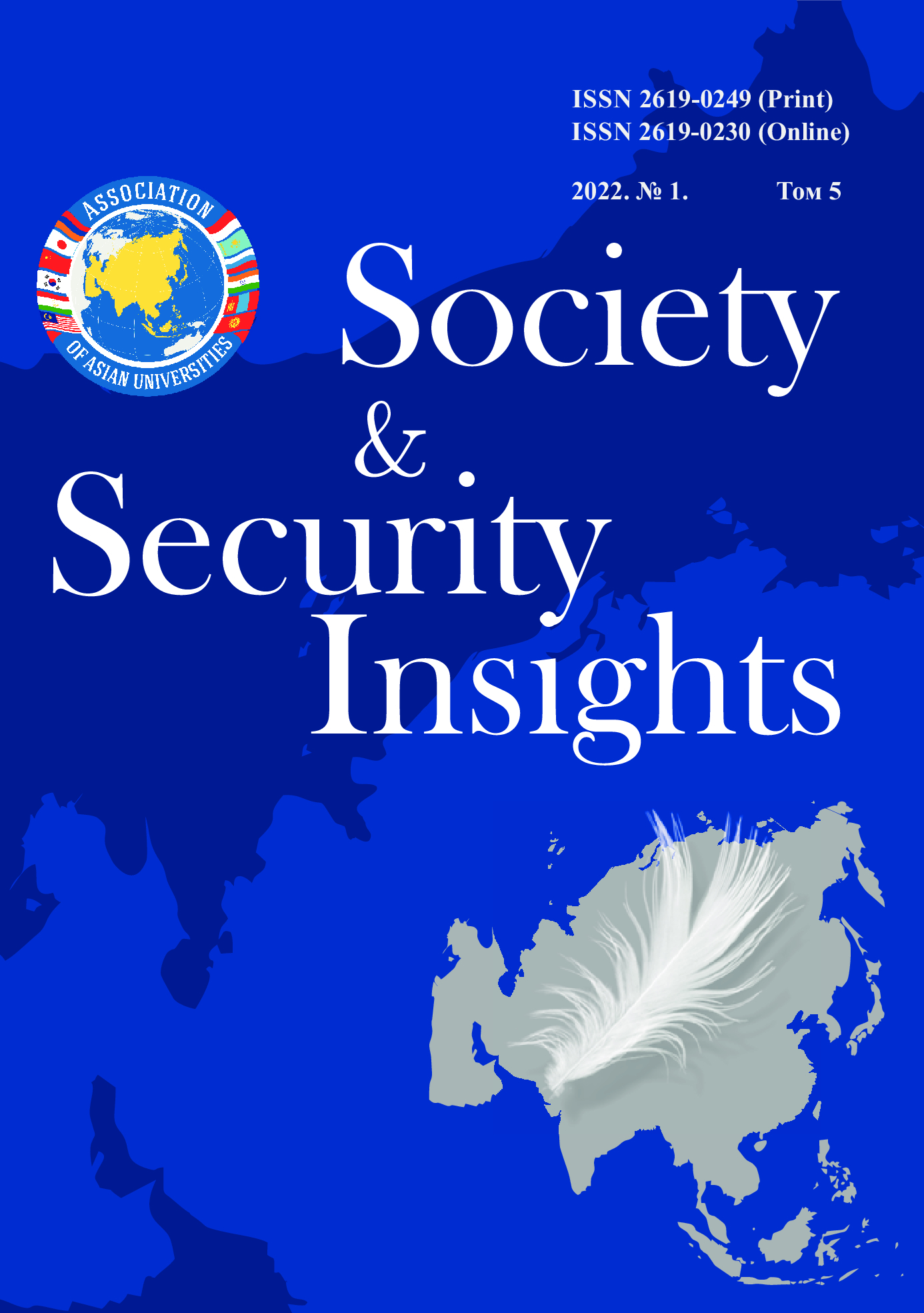PROTEST MOOD OF RESIDENTS OF CITIES OF THE NWFD IN THE CONDITIONS OF THE CRISIS
Main Article Content
Abstract
This study presents a comparative analysis of public opinion polls of residents of several municipalities of the North-Western Federal District, namely the cities of Petrozavodsk, Kaliningrad, Murmansk, Vologda, Cherepovets. The current level of protest potential of residents of these territories in the context of crisis processes related to the COVID-19 pandemic was analyzed. Groups of persons distinguished by a certain emotional mood and allowing their participation in protests were identified. Factors of formation of potential protest activity of urban residents have been determined. The results of the study showed that in the context of crisis processes against the background of a pandemic and growing social discontent, the protest potential of residents of municipalities ranges from 24 to 42%, which exceeds the average Russian indicators (18-20%). The continued proximity of assessments of the economic situation, material situation, political sentiment of representatives of the protest group and "other" residents of cities indicates the existence of potential prerequisites for maintaining protest sentiment, as well as poses a risk of increasing social tension in the event of a deterioration of the socio-economic situation.
Downloads
Metrics
Article Details

This work is licensed under a Creative Commons Attribution 4.0 International License.
Authors retain the copyright of their manuscripts, and all Open Access articles are distributed under the terms of the Creative Commons Attribution License, which permits unrestricted use, distribution, and reproduction in any medium, provided that the original work is properly cited.
References
Дементьева И. Н. (2014). Протестные настроения в комплексе трендов общественного развития // Проблемы развития территории. 2014. № 4 (72). С. 67-81.
Петухов В. В. (2018). Динамика социальных настроений россиян и формирование запроса на перемены // Социологические исследования. 2018. № 11. С. 40-53.
Протестные настроения. Уровень недовольства властями и готовность протестовать. URL: https://fom.ru/obshchestvo/11090 (дата обращения: 15.12.2021).
Руденкин Д. В. Фактор ценностей в развитии протестных настроений молодежи: итоги пилотажного исследования // Мир науки. Социология, филология, культурология. 2019. Т. 10. № 1. С. 8-26.
Савенков Р. В., Щеглова Д. В. Теории коллективного поведения и мобилизации ресурсов: развитие концепций анализа политического протеста // Вестник Российского университета дружбы народов. Серия: Политология. 2018. Т. 20. № 4. С. 555-563.
REFERENCES
Gurylina, M. V. (2015). Dynamics of protest moods in Russian society. Teoriya i praktika obshchestvennogo razvitiya, 10, 119-121. (In Russ.).
Dement'yeva, I. N. (2014). Protest moods in the complex of trends of social development. Problemy razvitiya territorii, 4(72), 67-81. (In Russ.).
Petukhov, V. V. (2018). Dynamics of social attitudes of Russians and the formation of a request for change. Sotsiologicheskiye issledovaniya, 11, 40-53. (In Russ.).
Protest moods. The level of dissatisfaction with the authorities and the willingness to protest. https://fom.ru/obshchestvo/11090.
Rudenkin, D. V. (2019). The factor of values in the development of protest moods of young people: the results of a pilot study. Mir nauki. Sotsiologiya, filologiya, kul'turologiya, 1, 8-26. (In Russ.).
Savenkov R. V., Shcheglova D. V. (2018). Theories of collective behavior and resource mobilization: the development of concepts for the analysis of political protest. Vestnik Rossiyskogo universiteta druzhby narodov. Seriya: Politologiya, 4, 555-563. (In Russ.).


 https://orcid.org/0000-0002-3072-5614
https://orcid.org/0000-0002-3072-5614